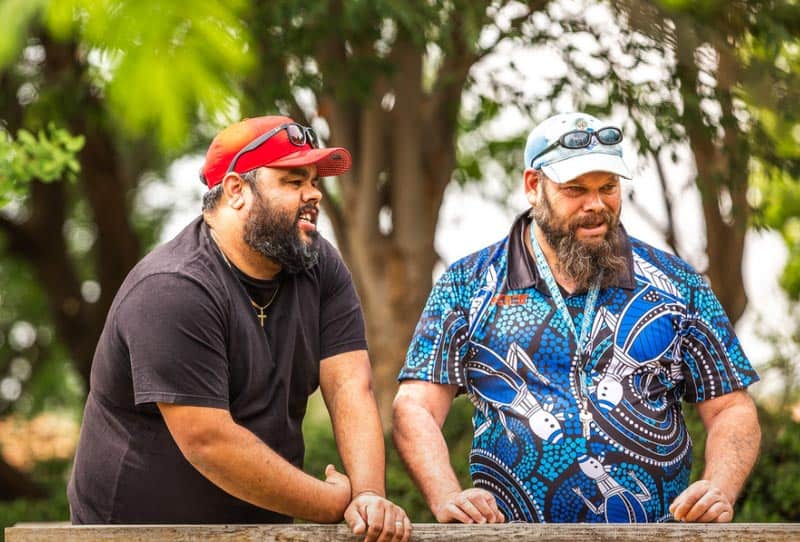Meet Danijela Vrkic, Founder of KINECT
In a snapshot, can you tell us how KINECT was created?
If you didn’t know, I love donuts; I’ve loved donuts all my life. My mum made the most delicious donuts, or Krofne in Croatian, from a very old family recipe that had been handed down over a number of generations. I’ll let you know they didn’t last long on the plate.
What I didn’t know was that my mums donut recipe was going to be the basis of creating employment for my son Anthony.
When Anthony left school, lots of conventional doorways were closed to him, access to doorways of opportunity seemed to be blocked.
My husband, John, and I were worried that Anthony’s Down Syndrome was going to get in the way of him finding meaningful work and being able to participate in every day social and economic life, to have his own money, independence, sense of belonging and contribution to the world around him.
Both John and I took the risk for the sake of our son. We left our respective jobs and businesses to set up Krofne to give Anthony that opportunity and help him kick open some of those doors. Not all of Anthony’s classmates have had such an opportunity. When Anthony wakes up and starts his day, he wants to be afforded the same opportunities that we have. He doesn’t want to stay home, watching TV, he wants to work, he loves to work.
KINECT has been developed out of my experience with Krofne. I have seen that so many employers have the desire and willingness to employ people with disability, but there is a fear and concern because they are not sure how. At the same time, there are enormous unemployment rates for people with disability. These are people who are eager to work and have the capacity to work. KINECT aims to bridge this divide by providing training to both workplaces and potential employees with disability – giving both sides of the employment picture the skills and confidence to develop long term maintainable working relationships. The current focus of the KINECT program is on creating employment opportunities for people on the autism spectrum.
When was the moment you decided to act and create the business?
The timing of when to start Krofne was very much based on Anthony. John and I started the business while Anthony was in his last years of school. We wanted to make sure we had the business up and running before he finished year 12.
KINECT is something that I have been working on with my business colleague, Lorcan Murphy, for a few years. It was when we received some government assistance in mid 2020 to fund the build of the training program that we were able to create the business.
What are the biggest obstacles for adults with either a cognitive disability or autism in gaining employment?
The biggest obstacle to employment is a lack of understanding. For employers, this creates fear or hesitancy in taking the step of employing diversely.
There is much good intention, but they don’t want to do the wrong thing. They fear it will cost them more money and won’t be cost-effective. There is not a common understanding of the supports that are available to assist with employing people who are cognitively diverse or neurodiverse.
For potential employees who have cognitive disability or autism, this means they often do not have the opportunity to develop the skills that they need to gain and maintain employment. Normal pathways towards employment – such as work experience, casual and part-time jobs – are often not available, so they don’t have the opportunity to gradually build work skills over time.
We often see people on the autism spectrum who have limited and short-lived experiences in the workplace. This is often because they have been encouraged to enter the workplace without disclosing that they are autistic. This quickly leads to difficulties and misunderstandings, which often results in employment being ended.
How have you seen your employee’s confidence rise since having employment opportunities?
Employment is such a significant statement of acceptance and inclusion. We have the privilege of watching how this builds confidence and self-worth for the people we employ at Krofne and KINECT.
As our employees continue to develop skills and experience success at work, you see this confidence continue to rise. You can see it in the way they present themselves, and you can hear it in the way they speak about work.
How has taking an office and becoming a member of WOTSO supported your business growth?
We first starting using space at WOTSO to run our KINECT training for autistic job seekers. It is a great space and helped us to achieve our goal of providing people with an experience of what a real work environment is like.
From our first interaction with Alanah and other WOTSO staff, we were welcomed and understood.
We have since taken up office space which has been a great change from working out of cafes, libraries or on kitchen benches. We enjoy the convenience of WOTSO but much more than that, the working community we have been able to connect with and the support that has been provided by WOTSO.
What does 2021 look like for KINECT & Krofne?
Krofne is continuing to pop-up around Canberra with delicious donuts. We work Thursday – Sunday at about seven different shopping centres.
KINECT is looking forward to rolling out training to workplaces and potential employees throughout 2021. We will be running all of our training from WOTSO and are excited about the opportunity to continue to build this relationship.





